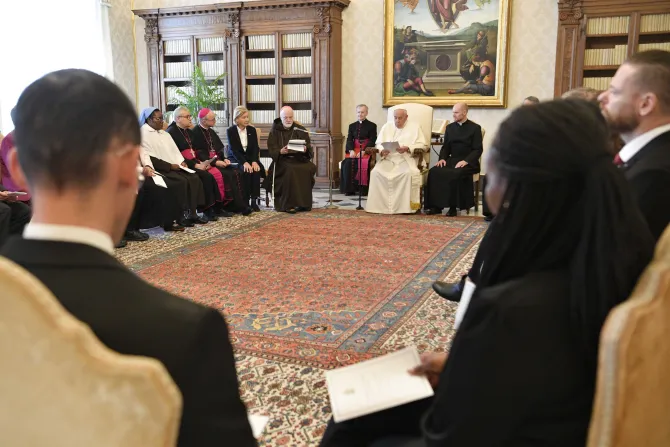The Vatican’s child protection commission is inviting the public to provide feedback on Church safeguarding principles for the creation of updated diocesan guidelines.
Anyone can participate in an online survey, which is available in four languages, including English and Spanish.
The responses will be used to formulate an updated Universal Guidelines Framework (UFG), the Pontifical Commission for the Protection of Minors said last week.
The final version of the UFG will be approved at the end of 2023 and distributed to Catholic dioceses and territories around the world with the request to update their current safeguarding guidelines according to the local culture.
“The function of these principles,” the commission said, “is to promote protection from abuse in the Church according to existing good practices in safeguarding, with a focus on assisting people impacted by abuse and the importance of dealing appropriately with instances of abuse.”
The guidelines have been distributed to the bishops’ conferences for feedback as well.
In 2024, the commission will release its first report on how the implementation of safeguarding guidelines is proceeding in some countries.
The commission will receive this information, going forward, directly from the local Churches during the quinquennial ad limina visit to Rome of the bishops’ conference.
The Catholic Church first began the process of establishing safeguarding guidelines around the world in 2011.
“It’s been a long time since 2011,” commission member Teresa Devlin said in an interview with Vatican News. “When Pope Francis gave a renewed mandate to the Pontifical Commission for the Protection of Minors last year, he asked us to look at developing supporting the implementation of new guidelines across the Church.”
Devlin told Vatican News the Global South, particularly Asia, is part of the world most behind in developing its own guidelines and abuse reporting and response structures.
But, she added, “it is up and down across the world. Some places are very well developed. Some places have not yet started to address the whole idea of abuse within the Church.
So it is hoped that these guidelines and the support in terms of their implementation through training and financial support, in terms of capacity building and building local Churches’ ability, that we will assist those Churches in the Global South in particular. But across the world where guidelines are not yet developed.”







